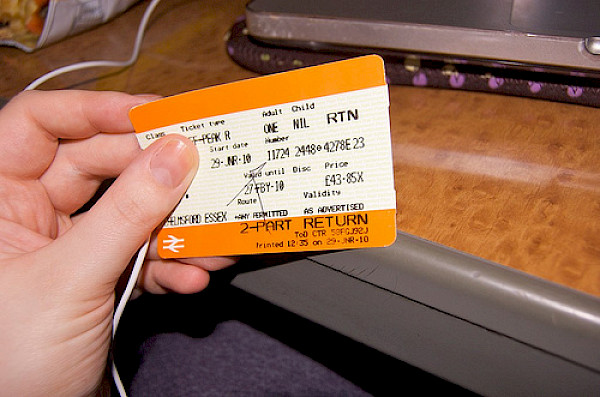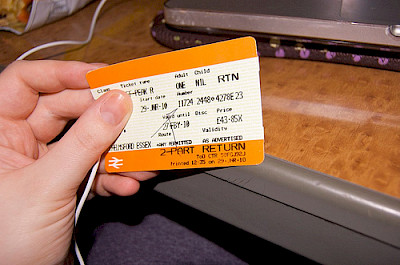
5 Nov 2012
Picture the scene: you’re waiting in line at the railway station and you get to the counter to find the cost of your train ticket has gone up. Again. Maybe you’ve got a railcard but it doesn’t help that much. Your journey is becoming unaffordable. This is mysterious though because when you look at the amount of money the government is investing in the railways, it’s not insignificant. The policy of shifting the cost from taxpayers to passengers, introduced in 2007, came from a realisation that the money spent on rail had tripled since privatisation. But the government is still spending billions every year, while you’re paying for fares that keep increasing above inflation. There’s someone benefiting here and it’s not you. A recent study found that renationalising the railways would save £1.2 billion a year.
This is a familiar story, and it doesn’t just apply to rail, where we’ve seen the full extent of so-called ‘private sector efficiency’ since 1997. We’re being ripped off across the board, both as service users and as taxpayers. We will pay £217 billion in “user charges” for PFI facilities between now and 2033, even though direct public ownership would be £3 billion a year cheaper. Atos paid its boss a £1 million bonus from taxpayers’ money, despite the company having wrongly assessed 38% of disability claimants. Bus fares go up above inflation every year while bus companies pocket healthy profits. Water leaks have been reduced by only 5% over the past 13 years but shareholders were paid £1.5 billion in 2010-11.
Alongside the rip-offs are the scandals: Serco keeping NHS patients waiting in Cornwall, private care workers who are so pushed for time that they can’t care properly for vulnerable people, private court interpreters who aren’t qualified for the job. What exactly are we, the public service users, getting from this?
And what do we want? Public opinion is in favour of public ownership of the railways – at least 70% of the British public feel that the railways should be back in our hands. Again, it’s not just rail. A recent YouGov poll found that 64% of people were convinced that “services like health and education should not be run as businesses” because “they depend on the values and ethos of the public good”; only 17% disagreed. Most people believe that we already own public services. They are rightly sceptical about the idea of handing over yet more public assets, contracts and taxpayers’ money to private companies which have often failed to achieve good outcomes for anyone other than their shareholders.
And yet the government decided to introduce ‘Open Public Services’, a policy which says that all public services should be ‘open’ to any provider to run. It encourages local authorities to outsource, suggesting that a bidding competition between all sectors for public services is what service users want. This is a myth. Many local authorities are in fact bringing services back in-house because it provides better value for money and better quality for us. ‘Openness’ will simply lead to private companies muscling in on public sector contracts, while the voluntary sector struggles to compete. The people who actually use the services won’t even get a look in.
Enough is enough. It’s time for for us to fight back. We Own It was set up to look at the evidence, to understand how the old battles (like the railways) relate to the new ones (like local authority outsourcing), and most importantly to campaign on behalf of public services users for a better way. Privatisation is not in our interests. We own these services, we pay for them, at the train station, in our water bills, through our taxes, and we suffer when private companies take our money and fail to give us the high quality services we need. We’re looking for supporters and affiliates. Will you join us?
Cat Hobbs, Founder - We Own It
This blog was first published on Union Home (Unions 21).

